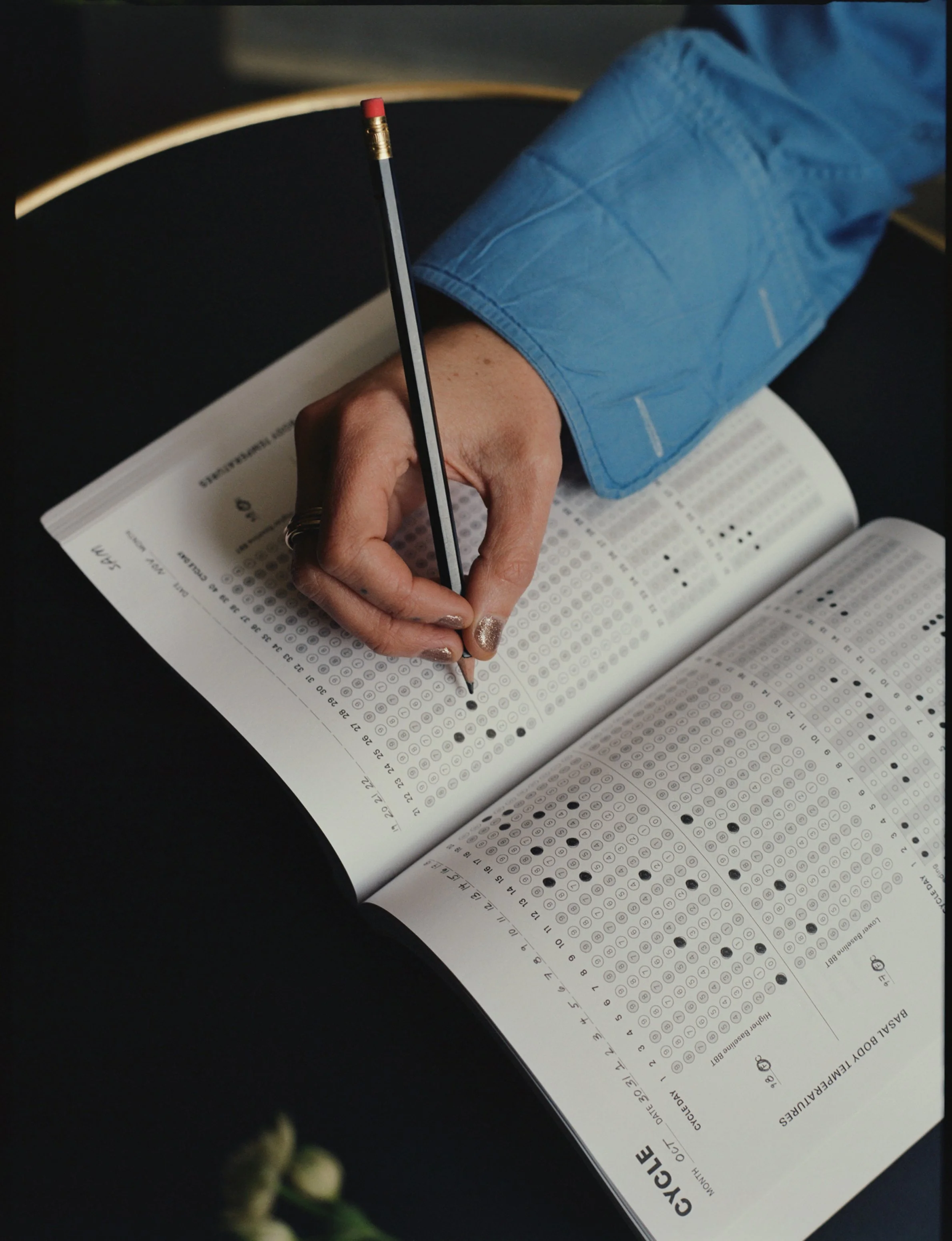body literacy for
clinicians
two hour asynchronous workshop
Join us as we bridge the gaps in our education and discover how body literacy can become a path to client empowerment.
We’re excited to announce a focused 2-hour live and recorded workshop designed specifically for clinicians seeking to deepen their understanding of hormonal influences on health, behavior, and emotions.
Our last live workshop was 12/12/25 at 12pm EST. A recording is available for those who could not attend live.
As health providers, we encounter people every day who are navigating complex hormonal experiences. Whether it’s a Premenstrual Disorder like Premenstrual Dysphoric Disorder (PMDD), perimenopause, postpartum changes, Gender Affirming Hormone Therapy (GAHT), the adjustment to a hormonal contraceptive, or simply the emotional and cultural reality of living in a body that bleeds, the mental health impact of hormonal shifts is profound. Hormonal transitions can significantly impact emotional well-being and sense of identity. Yet many providers feel underprepared to address these shifts in clinical practice because most of us were not taught how.
Expand Clinical Skills
Whether you're new to this topic or looking to deepen your expertise, this training will equip you to show up for your clients with clarity, compassion, and confidence.
Help With What Really Matters
You’ll leave with concrete tools you can immediately integrate into your sessions, empowering you to hold space for your clients’ full hormonal and emotional experiences as part of the therapeutic process.
what we all see in our offices
Your therapy client of a year shows up for session, describing sudden surges of dread, heart pounding, sweating, a sense she’s dying. “It comes out of nowhere,” she says. You consider panic disorder. Over a few months, you try somatic work, mindfulness, grounding, EMDR and work with past trauma. This is helpful, but the waves persist.
One day many months later, your client comes prepared with thoughts about the TikToks she’d watched since the last time she saw you, which lead to some podcasts, which then lead to some Reddit research, and ended in a lengthy discussion with ChatGPT. She believes she is in perimenopause and is so relieved to have found an answer to how she has been feeling that she has already ordered weighted vests, loads of supplements, and has signed up for an expensive course with an Instagram dietitian.
The two of you have never had a conversation about menstruation, her experience with her hormonal cycles and mental health, and you don’t have any information that would inform your understanding of her baseline..
PME
Your client comes in every week, thoughtful and committed. They do the homework, practice exposure, “ride the wave” of the intrusive thoughts. Some weeks, it feels like the EXRP is working as it is intended - fewer compulsions and steadier mood. Other weeks, everything unravels. You attribute these fluctuations in presentation to stress, sleep, and frustrations around dating.
The pattern repeats: your client reports improvement, then high distress, then improvement again. Each session, you adjust interventions, add new techniques, and praise your client’s insight. Many months pass before your client remarks, almost offhand, “It’s always worse before my period.”
You’ve never asked your client about their period, you’ve never asked how they felt during it, and have never explored tracking. You didn’t learn about Premenstrual Exacerbation (PME) in your training, and have thought that anything related to cycles was pop psychology.
Libido
It’s like my libido evaporated,” she says. “I love her, I’m attracted to her, but my body just doesn’t respond.”
You two do amazing work understanding her relationship to performance anxiety, stress, and a painful history of body dysmorphia.
You explore communication, pressure, fantasy. She does the homework, starting with trauma-informed individual Sensate Focus.
“It’s not that I don’t want sex,” she says, “it’s that I don’t feel want.”
One session she comes in and tells you that, after seeing a series of TikToks from wellness influencers, she has discontinued her hormonal contraceptive pill, which she had started taking a few months ago for her migraines.
She feels her libido is back, and has a new distrust of her primary care doctor as well as you. She feels the wellness influencers might understand her better. She doesn’t feel comfortable telling you her new plan to manage her migraines. You didn’t even know she had started the pill, and you realize you have actually never even asked her about her hormonal history.
from taboo to treatment: practical tools for clinicians
Hormonal cycle education has traditionally focused on people assigned female at birth and has often been framed through a heteronormative, reproduction-centered lens. In today's climate, our clients seek to fill that gap by taking their health education into their own hands through TikTok, ChatGPT, and Reddit, to varying degrees of success.
Join us on 12/12 at 12pm EST
Each registration includes a personal copy of the book, shipped directly to you.
2 AASECT and MEAC CEUs offered!
$70 with book, without CEUs
$90 with book and CEUs
Video link for workshop will be emailed out the week of the event.
If cost is a barrier, please contact us.




